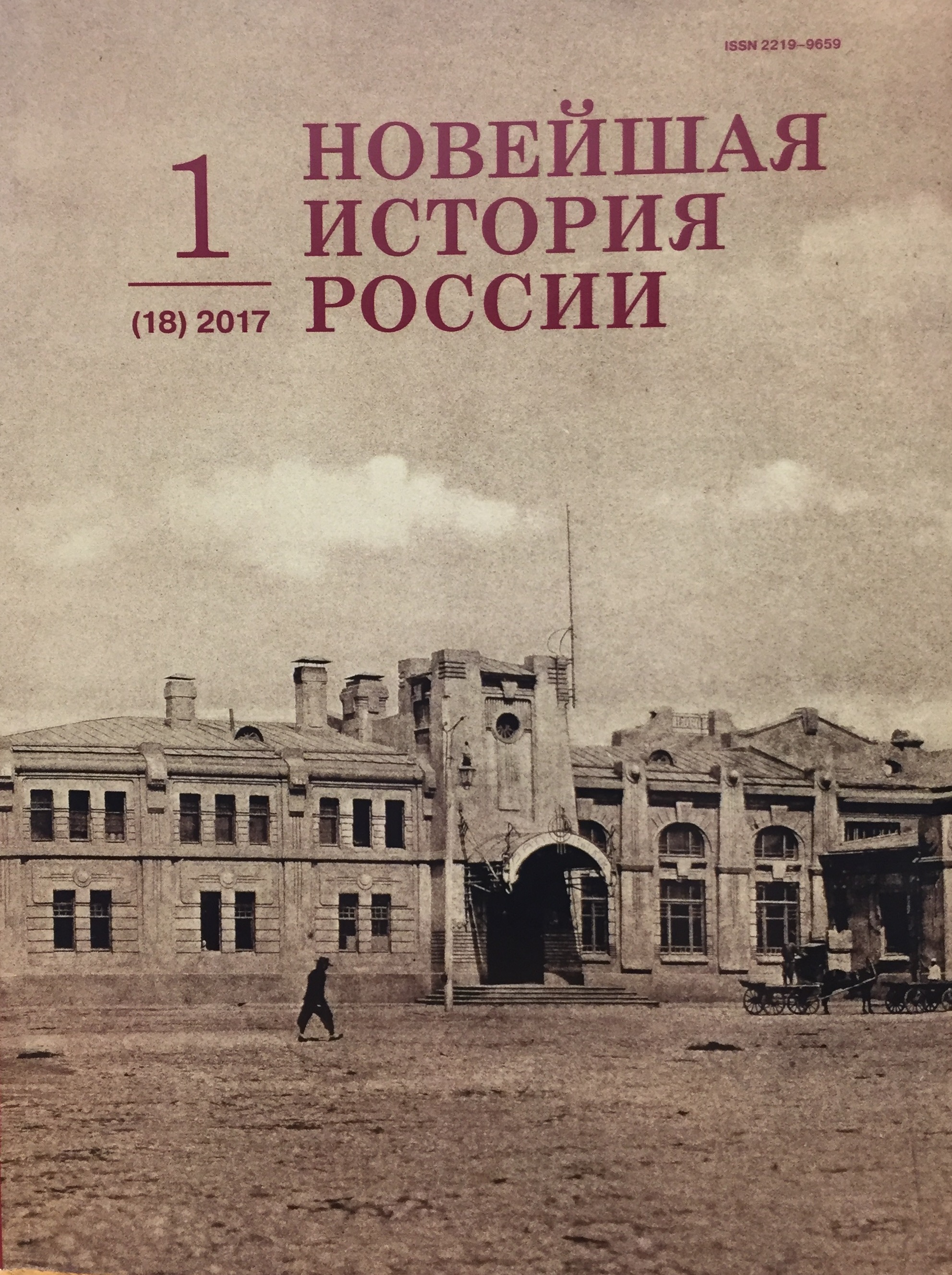Национальный вопрос и районирование в РСФСР в 1920-е — начале 1930-х годов: управленческие стратегии и их реализация (по материалам Поволжья)
The Matter of Nationality and Zoning in RSFSR in 1920 — early 1930s: Management Strategies and Their Implementation (Based on the Materials of Volga Region)
Author(s): Olga Aleksandrovna Sukhova, O. A. FilenkovaSubject(s): History, Economic history, Social history, Recent History (1900 till today)
Published by: Издательство Исторического факультета СПбГУ
Keywords: USSR; RSFSR; Middle-Volga region; nation-building; indigenization; reforms; administrative and territorial division; zoning
Summary/Abstract: Authors examine of national construction practice in the USSR in the 1920s — 1930s on the basis of RSFSR Central Executive Committee’s department of nationalities documentation, as well as on documents of department of agitation and propaganda of Central and regional Committees of the CPSU(b). Both the unconditional recognition of the right of nations to self-determination and the thesis of the age-old backwardness of remote regions of Imperial Russia in the first post-revolutionary years became an active factor in the reconstruction of the country and in creation of large national autonomies. During the NEP period despite a sharp reduction in funding of national programs, the strategy of regionalization, which was part of a global national economic reforms, also experienced the impact of this issue and has been supplemented by the formation of ethnic districts, counties and finally by indigenization policy. New ideological priorities in national policies were set up at the beginning of the 1930s, when there was a serious threat to social and political stability, caused by implementation of collectivisation. “Mechanical” indigenization was replaced by functional indigenization; the districts were eliminated under the slogan of making lower authority apparatus closer to people. Permanent adjustment of nationbuilding ideology shows the inconsistency of the course. The evidence of ignoring of the principle of economic expediency during the zoning process and, on the other hand, its public reclamation allow to doubt that officially proclaimed intentions of the Soviet leadership corresponded to its real political activities. The exclusive criteria for the choice of the course was the strengthening of “authority vertical” and an irrational belief in the omnipotence of the administrative methods of solving any problems of social development.
Journal: Новейшая история России
- Issue Year: 7/2017
- Issue No: 18
- Page Range: 62-77
- Page Count: 16
- Language: Russian

